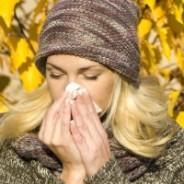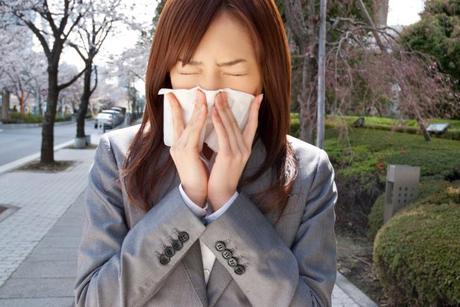
Although many people associate allergy season with the onset of spring, fall can also wreak havoc with allergy sufferers.
The fall season brings with it a scene of great beauty and change. The cooler temperatures, the changing color of the leaves and also the urge to enjoy hot coffee. However, with this particular beauty and change, allergies are also a part of the fall season. Every year, a large number of people become victim of this allergy that causes them serious problems and health concerns.
Allergy sufferers ultimately want relief from the symptoms that can make getting through the day difficult. Because the demand for natural products without rebound or adverse effects grows, natural practitioners can provide a variety of different treatment options that may aid in relieving the discomfort.
What Are The Symptoms Of Allergies?
- Allergy symptoms can vary widely depending on what you’re allergic to.
- Seasonal allergies can be triggered by high pollen counts and are common in the Spring, Summer and Fall.
- Food allergies are triggered by foods.
- Allergy symptoms vary with respect to the type of allergy/allergies that you have, but some symptoms include wheezing, watery eyes, runny nose, asthma, breathing difficulties, hives, sneezing, headaches, swollen eyes.
Treat Fall Allergies
By treating your seasonal allergies naturally with things like vitamins, minerals, and herbs, you also boost and strengthen your immune system and supply adrenal support. In other words, not just are you fighting your allergy symptoms, you’re also helping your body fight illness down the road.
Omega-3 Fatty Acids
A study linked foods high in omega-3 fatty acids using the ability to fight allergy inflammation. That’s why allergy sufferers should consume a diet rich in foods for example cold water salmon and tuna, walnuts, flaxseeds, and eggs.
Butterbur
The herb butterbur has had some spectacular clinical trial results. One tablet of butterbur, taken four times per day, is just as effective as over-the-counter antihistamines like Zyrtec or Allegra, but with no of the negative side effects.
Scrub Your Eyelids
Use a gentle, non-irritating baby shampoo to thoroughly wash your eye lids and eye lashes many times a day. They eyelashes are where pollen will have a tendency to accumulate during days of high pollen counts. This can drastically cut down on red, itchy, swollen, irritated eyes.
Vitamin C and E
Eating more vitamin C during allergy season can help boost your immune system, giving it strength to fight off allergens as well because the potential infections that sometimes result from an excessive amount of drainage. Vitamin C and E are both anti-inflammatory, which helps your airways.
Spicy Foods
Foods having a naturally spicy kick-such as chili peppers, horseradish, jalapenos, or hot mustard-are often recommended for his or her ability to clear the sinuses stat! It appears as though naturally spicy foods are often able to clear the sinus airways when pollen counts cause congestion and sinus pain.
Fresh Ginger Tea
Fresh ginger is known to be an anti-inflammatory. So, shave some off and set it into a tea ball, and soak it in hot water not less than five minutes. You’ll have a hot ginger tea that’s ideal for easing pressure in your sinus cavities.
 Rooibos Tea
Rooibos Tea

Steep some of the caffeine-free, nutty red brew to boost your production of antioxidants. You can test black or green tea if you desire a caffeine boost, but all three types of tea will zap immunoglobulin E, a potent allergy trigger!
Stinging Nettle
You can purchase an antihistamine at your pharmacy, but stinging nettle, a natural remedy, is really a natural antihistamine-minus the side effects of most pharmaceutical drugs like dry mouth, stomach ache, and lethargy. You can purchase stinging nettle in freeze-dried capsule form or brew it inside a tea.
